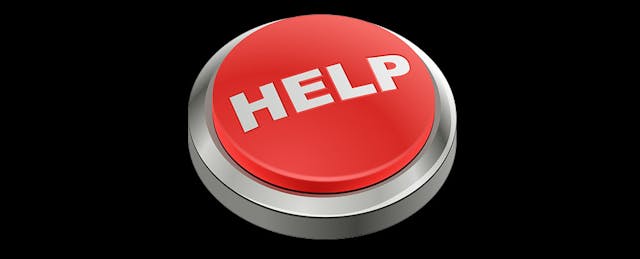In standards-driven schools, students and teachers often find themselves constrained by the regulations and rules instituted by policy-makers and administrators. This is common in any school system, and many of these regulations are warranted. But sometimes, this element of control can consume the classroom. Students feel as though their natural curiosity must take a backseat to regiment and routine. Some may even get straight As without having to be the innovative thinkers and problem solvers that our society should be raising.
To solve this problem, we as a whole must produce more opportunities for students to be independent and pursue their own interests. Rockets Help Desk (RHD), hosted at Reading Memorial High School in Massachusetts, is a course that allows students to do just that--be innovative and creative at school.
RHD started during the summer of 2014 when Kerry Gallagher emailed many of her students, asking if they were interested in become a part of a new student tech team pilot at the high school. Although there was fervent student support of the program, all but two of us students were unable to participate in the program, due to schedules packed with traditional courses. We were those two students, and together with Ms. Gallagher, we are the founding members of Rockets Help Desk.
We voluntarily spend our directed study periods making video tutorials for edtech tools, engaging in Google Hangouts with edtech professionals, preparing formal presentations for our district and for professional conferences, and consulting with other teachers who want suggestions for ways they can incorporate tech into what they are doing in their classes.
Here’s why we love it.
Student-Driven Learning and Service
By founding and creating Rockets Help Desk, we have been able to create our own learning experience. We are building something we believe in, learning without the constraints that school often creates, and independently pursuing our interests in business and technology. By sharing our work with the community via our blog and Twitter, we can display how students can create high quality products when given more choice.
Another reason we want to share what we have done with the community is that the work we do at Rockets Help Desk can benefit others besides ourselves. We believe that there are many ways to use technology to benefit learning and education. At Rockets Help Desk, we explore those different approaches, and it’s important to share what we learn and discover with our community in order to inform them of the possibilities. On our blog, we post app tutorials, some of which have gotten a very popular response. (For example, our most popular include our tutorials on Evernote and Educreations.)
From Pilot to Student-Driven Course
Although we are very busy this year with the program, it exists as a pilot program where students can voluntarily give up directed study time to participate. This works for us, and a few more students have joined us over the course of the school year.
But what about other interested students, who simply cannot find time in their schedules? In order to overcome this obstacle, we wrote our course proposal so that RHD could become a part of more students’ school day. In designing our course model, we consulted with the Burlington High School Help Desk, specifically with Instructional Tech Specialist Jennifer Scheffer, and Grafton Public Schools EdTech with Andrew Marcinek to learn about the way they run their courses. While we enjoyed learning and exploring their programs, our help desk varies from their models. Their schools are 1-to-1, whereas Reading Memorial High School is a Bring Your Own Device district. This means students use their own smartphones, tablets, and laptops from home on the school network. The difference in the way technology is provided is part of the reason why our course is different from theirs. The truth is that every school culture and infrastructure is different, so student-driven learning will also vary from school to school.
Once our course proposal was complete, we scheduled meetings with the principal, superintendent, and school committee. All of our hard work paid off when Rockets Help Desk was approved to be a business technology class offering for next school year. Working as a team of students and teacher to put together a course that we all believe in was rewarding. Many students have signed up for the course, and we are excited to grow the RHD team in the 2015-2016 school year.
Students as Leaders
Having been a part of the pilot and written the course guide, we believe in the fundamentals developed for our class. As the program continues to expand, we hope that our roles grow along with it.
It will be a challenge to find the right balance in the roles of teacher, facilitator, student, and leader. But since students and teachers are building this together, we all plan to be flexible and challenge ourselves moving forward.
We also have hopes to start a similar small scale program on the middle school level--whether it be an afterschool club, a class, or just an opportunity for our schools to connect better.
The next generation of students has integrated technology into their everyday lives seamlessly. Unfortunately, this can turn into overuse and misuse. We hope that our Rockets Help Desk will bring students and educators together to find the right balance of technology and learning in our schools and community.


